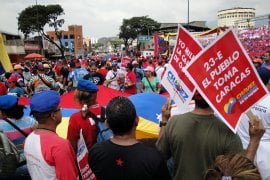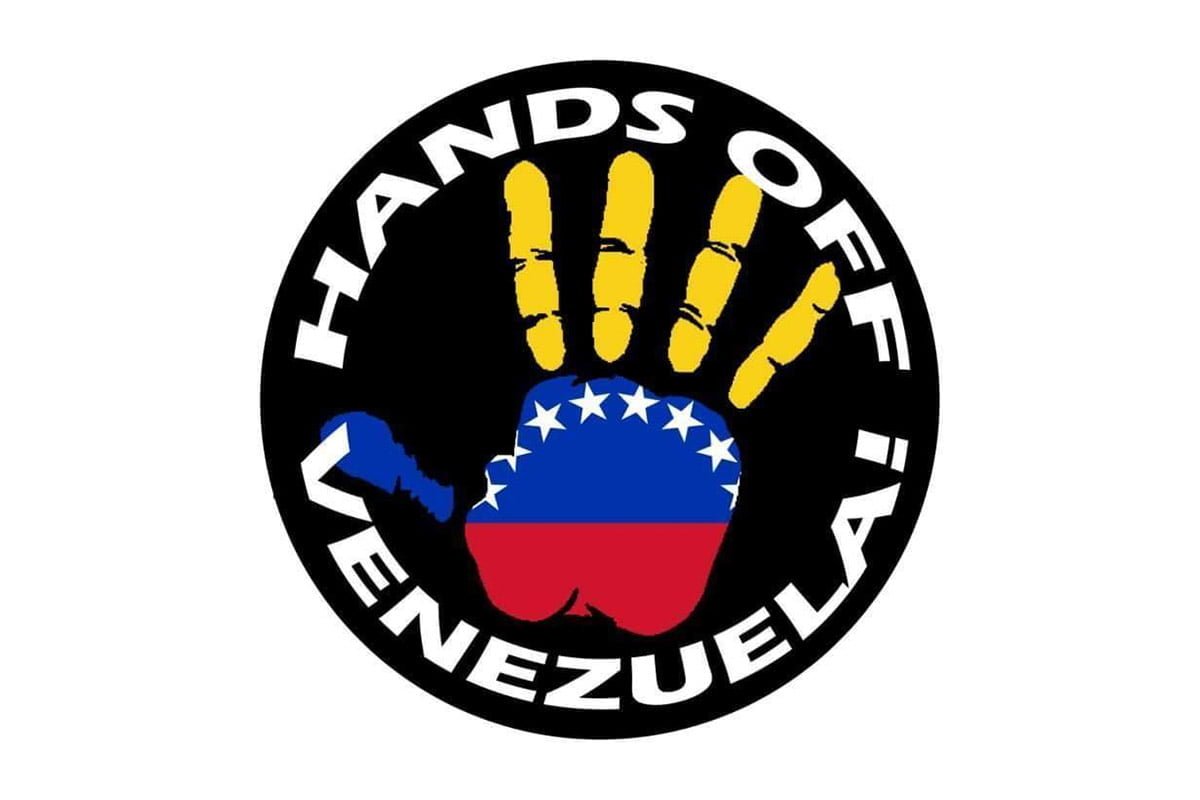On January 23, Caracas was once again the scene of a huge mass mobilization in defence of the revolution. January 23 is a national day of struggle in Venezuela. It was the day that the infamous Marcos Pérez Jímenez dictatorship fell in 1958, overthrown by the mass movement from below. The opposition tried to cynically take advantage of Chávez illness and called for a demonstration to protest against “the unconstitutional situation”, i.e. against the postponement of the swearing in of Chávez. The PSUV leaders responded by calling on the masses to take the streets on the same day.
On January 23, Caracas was once again the scene of a huge mass mobilization in defence of the revolution. January 23 is a national day of struggle in Venezuela. It was the day that the infamous Marcos Pérez Jímenez dictatorship fell in 1958, overthrown by the mass movement from below. The opposition tried to cynically take advantage of Chávez illness and called for a demonstration on January 23 to protest against “the unconstitutional situation”, i.e. against the postponement of the swearing in of Chávez. The PSUV leaders responded by calling on the masses to take the streets on the same day.
Faced with the prospect of being completely surpassed in numbers and strength, the opposition leaders suspended their march and replaced it with a call for a small rally which took place in Parque Miranda, an upper class area of Caracas, with less than 6,000 attending.
Meanwhile, hundreds of thousands of chavistas filled several squares, marching towards the 23 de Enero neighbourhood. A big contingent in the demo was made up of the unions, both the UNETE and the CBST. Thousands of militia men and women in green uniforms also marched, sending a clear warning to the opposition. Rank-and-file chavistas carried banners on the march that included slogans against any pacts or agreements with the right-wing.
Clearly the MUD (Mesa de Unidad Democrática) opposition leaders were mortally afraid of provoking an explosive outburst of rage on part of the revolutionary masses. That was why they retreated from the initial call for a march and limited themselves to a poorly organized indoors rally. Incidentally, a team of reporters from the state channel VTV was violently attacked when trying to cover this meeting, with a camera operator being sent into hospital as a result. This shows the real character of this so-called “democratic” opposition.
Although they continue to sow doubts as to the legitimacy of Chávez absence, they know that the theme of his illness is a very delicate issue. All the manipulations, speculations and distortions on part of the bourgeois media and opposition leaders have discredited them. Instead of putting into question the revolution, the opposition campaign has enraged millions of chavistas who felt that the MUD was cynically taking advantage of Chávez cancer illness.
The main feeling among the masses is that there shouldn’t be any compromise with the enemies of the revolution. That is absolutely correct. The intelligent sectors of the bourgeoisie are hoping that without Chávez in the presidency, a slow transition towards “normality” can take place. This could be completed by gradually undoing all the gains of the revolution, the social missions, the nationalizations, the elements of workers control, the agrarian reform and so on.
But the masses will oppose such a development ferociously. Today’s march proved it clearly. Regardless of the situation of Chávez, who is still in Havanna but apparently improving his health, the main task ahead for the revolution is to destroy the social power of the counter-revolution.
The campaign against hoarding and speculation with basic food products of the last few weeks, in which the government has seized thousands of tons of food kept in warehouses outside of the distribution chain, has shown the impossibility of introducing elements of state regulation of the capitalist market. All this achieves is a strike of capital. Either one moves towards the democratic planning of the economy in the benefit of the majority of the population (and this can only be done through the expropriation of the means of production) or any attempt to control and regulate capitalism will only create further chaos, disorganisation, inflation and flight of capital.






